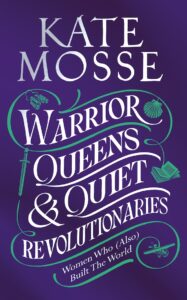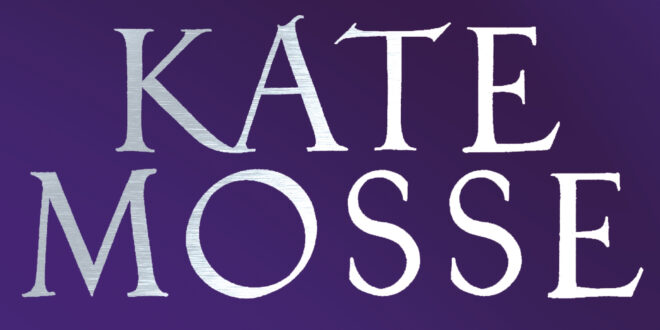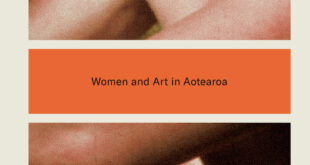We are very pleased to be giving away three copies of Kate Mosse’s book, ‘Warrior Queens & Quiet Revolutionaries’, to our GrownUps members.
All you need to do to enter the draw is be a GrownUps member, make sure you’re signed up to our newsletter and fill in your details near the bottom of the page!
 Not a member?
Not a member?
Join now
About Warrior Queens & Quiet Revolutionaries
An alternative feminist history of the world and a personal memoir about the nature of women’s struggles to be heard, by award-winning writer Kate Mosse.
Warrior Queens & Quiet Revolutionaries brings together Kate’s rich and detailed knowledge of unheard and under- heard women’s history, and of how and why women’s achievements have routinely been omitted from the history books. This beautiful illustrated book is both an alternative feminist history of the world and a personal memoir about the nature of women’s struggles to be heard, about how history is made and by whom.
Split into ten sections, each covering a different category of women’s achievements in history, Kate Mosse tells the stories of female inventors and scientists, philanthropists and conservationists, authors and campaigners. It is the most accessible narrative non-fiction with a genuinely diverse, truly global perspective featuring names such as Sophie Scholl, Mary Seacole, Cornelia Sorabji, Helen Suzman, Shirley Chisholm, and Violette Szabo. And in deeply personal passages Kate writes about the life of her great-grandmother, Lily Watson, where she turns detective to find out why she has all but disappeared from the record.
New Zealand content includes:
Ethel Benjamin (1875-1943) became the first woman, in what was still the British Empire, to appear as counsel in court and the second to be admitted as a barrister and solicitor. Benjamin opened her own private legal practice, mostly acting for clients from the Jewish community and women with financial interests, as well as publicans and hoteliers. In 1899, she was also a founding member of the Dunedin branch of the Society for the Protection of Women and Children.
Emily Siedeberg (1873-1968) was New Zealand’s first female medical graduate, was a founding member of the Dunedin branch of the Society for the Protection of Women and Children, and became Honorary Life President in 1949.
Margaret Cruickshank (1873-1918) was NZ’s first registered female doctor. She spent her entire career in Waimate in the South Island and worked tirelessly during the flu epidemic of 1918, which claimed her life. There is a statue in her honour there, which remains one of the few memorials to a woman other than Queen Victoria.
Kate Sheppard (1843-1934) is one of the mothers of the women’s movement in NZ. Relentlessly organizing petitions and public meetings, writing to the press and developing relationships with politicians, Sheppard was the editor of The White Woman, the country’s first woman-run newspaper, and published several pamphlets about why women should be granted suffrage. Her work paid off and a thirty-thousand signature petition was presented to NZ Parliament, resulting in NZ becoming the first self-governing country in the world to establish universal suffrage in 1893.
Jean Batten (1909 – 1982) was a New Zealand aviator. She was the first woman to fly solo from England to Australia and back again, and was also the first woman to fly from England to South America. In October 1936, she flew from NZ to England in just over eleven days, a record that remained unbroken for the next forty-four years.
Nancy Wake (1912-2011) was a New Zealander and one of the few women awarded the Medaille de la Resistance in 1943. She was a courier and a vital part of the network smuggling Allied airmen out of France and into Spain. She also received the Medal of Freedom from the US, the Legion d’Honneur and the Croix de Guerre, the Companion of the Order of Australia, and the Badge in Gold from NZ.
Elizabeth McCombs (1873-1935) was New Zealand’s first female member of Parliament in 1933 and Matiu Ratana (1905-1981) was the first woman to represent Maori in Parliament in 1949.
Whina Cooper (1895-1994) was a legendary Maori elder and activist. She campaigned against an area of leased mudflats at Whakarapa on NZ’s North Island and despite being charged with trespassing, she and her fellow protestors prevented the project from going ahead. She was elected the first president of the Maori Women’s Welfare League in 1951 and given the title ‘Mother of the Nation’, and in 1975 she led a march to protest the loss of Maori land and to demand acknowledgement of their property rights under the Treaty of Waitangi.
AUTHOR INFORMATION
Kate Mosse is an award-winning novelist, playwright, essayist and non-fiction writer, the author of eight novels and short-story collections, including the multimillion-selling Languedoc Trilogy, The Burning Chambers Series and number one bestselling Gothic fiction The Winter Ghosts and The Taxidermist’s Daughter. Her books have been translated into thirty-seven languages and published in more than forty countries. The Founder Director of the Women’s Prize for Fiction, she is the Founder of the global Women in History campaign.
Terms and conditions
- You must be a GrownUps member and receive our newsletter to be eligible to win.
- Competition closes on the 1st November 2022, winners will be notified via email by 3rd November 2022.
- It is your responsibility to ensure you correctly enter a New Zealand postal address where the prize can be couriered. GrownUps will not take responsibility for prizes sent to incorrect addresses.
- Winners are drawn at random by the GrownUps administration team.
- GrownUps employees and family are not eligible to enter.
- By entering the giveaway, you approve for GrownUps to use your name on social media as winner of the competition.
- One entry per person.
- Prize is non transferrable.
- You must reside in New Zealand – the prize will only be posted within New Zealand.
- You must be over 50 years of age to enter, check your details are correct in your membership dashboard.









Join the Discussion
Type out your comment here:
You must be logged in to post a comment.